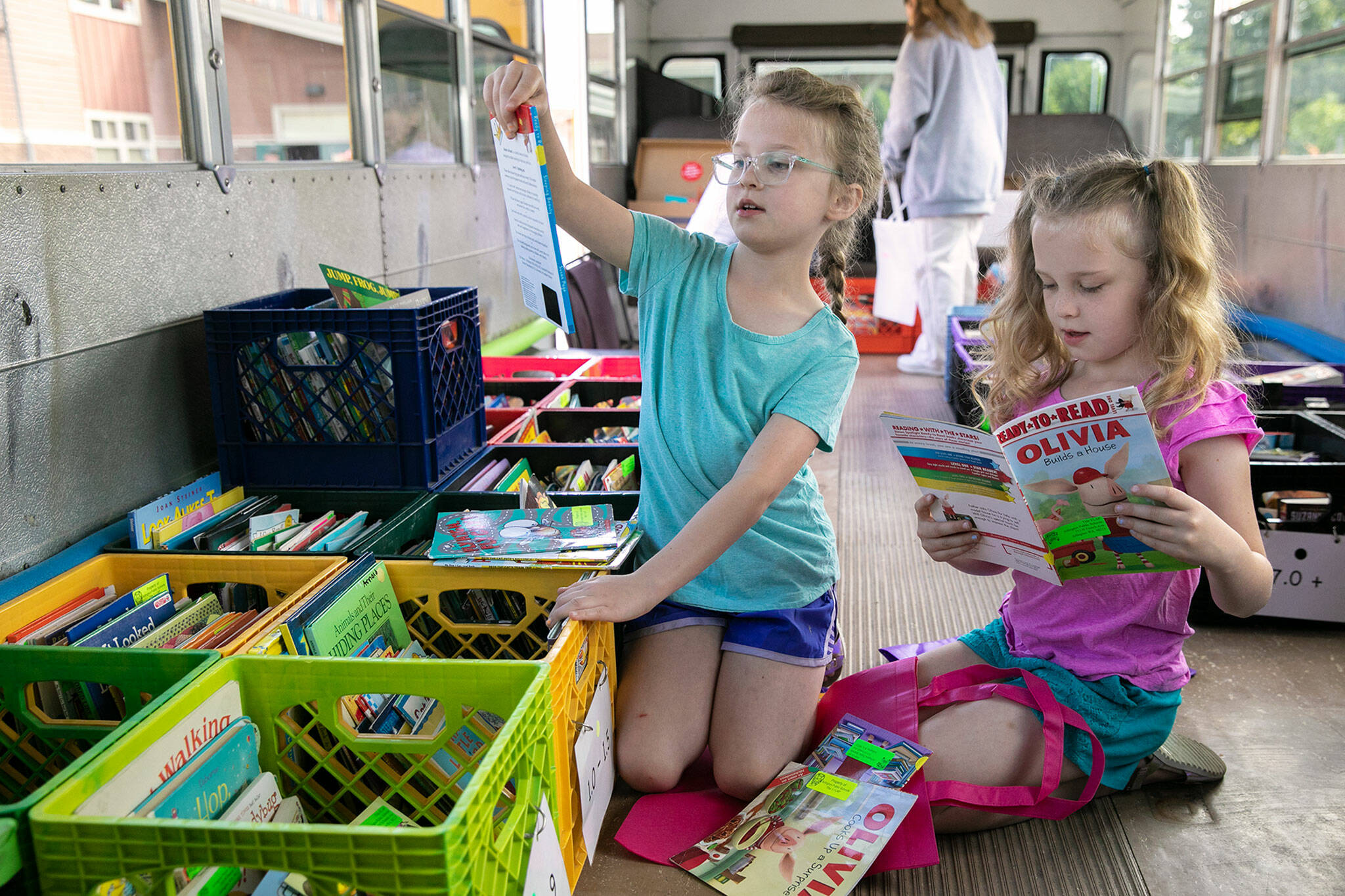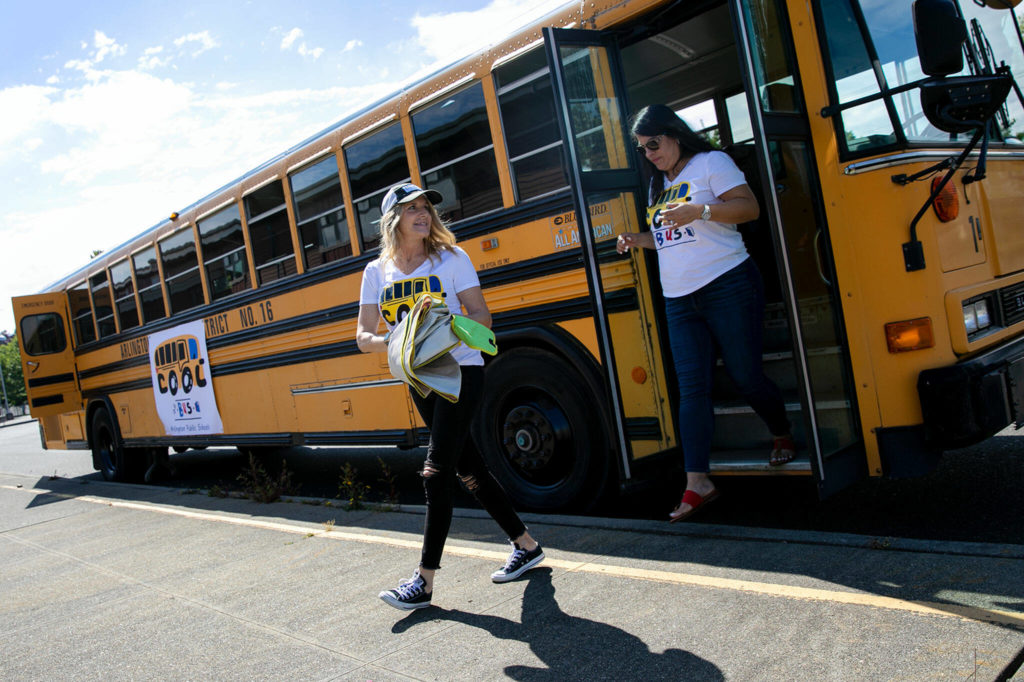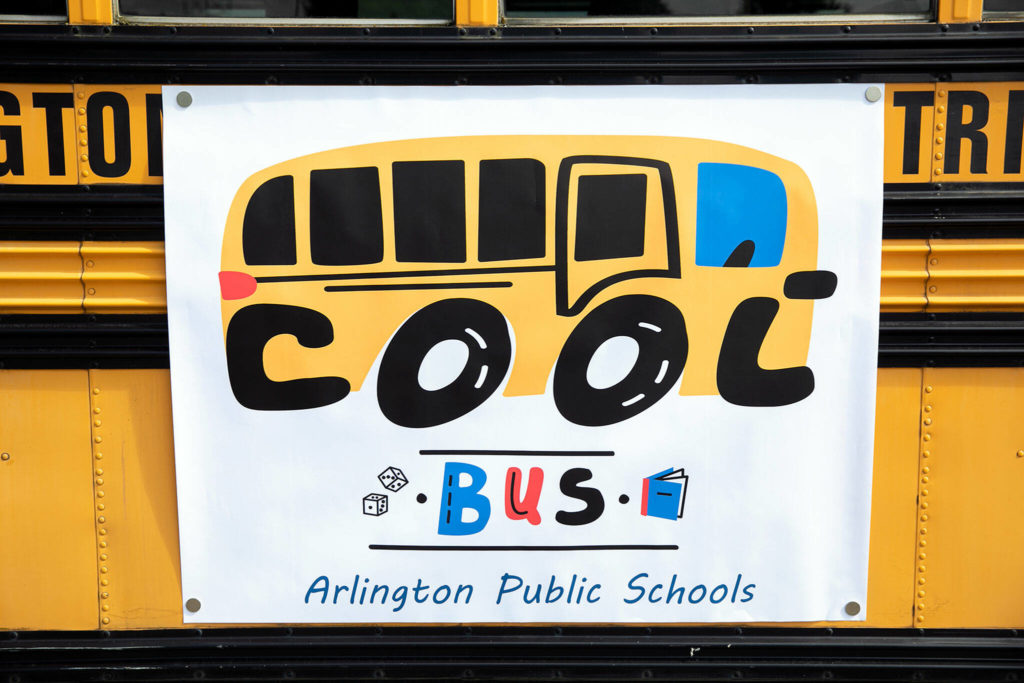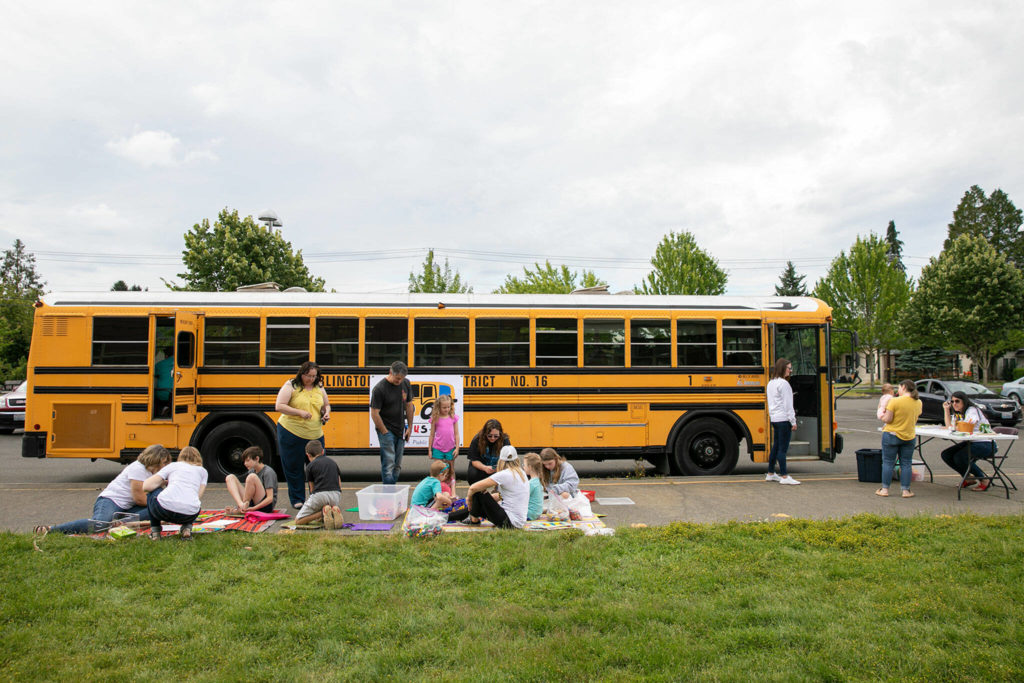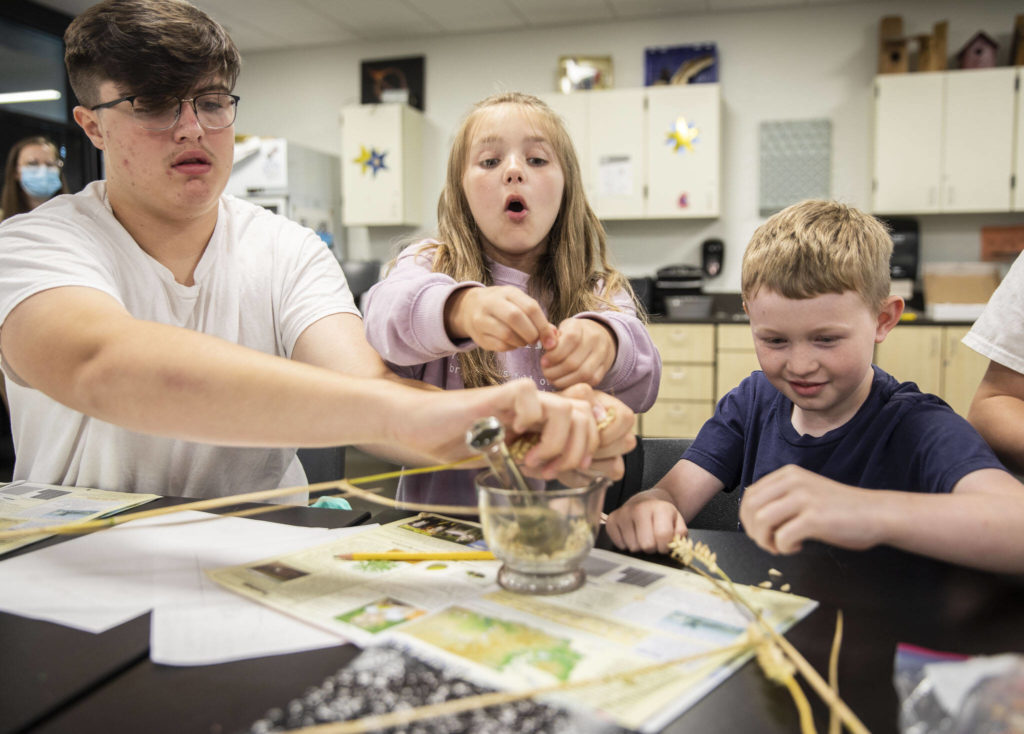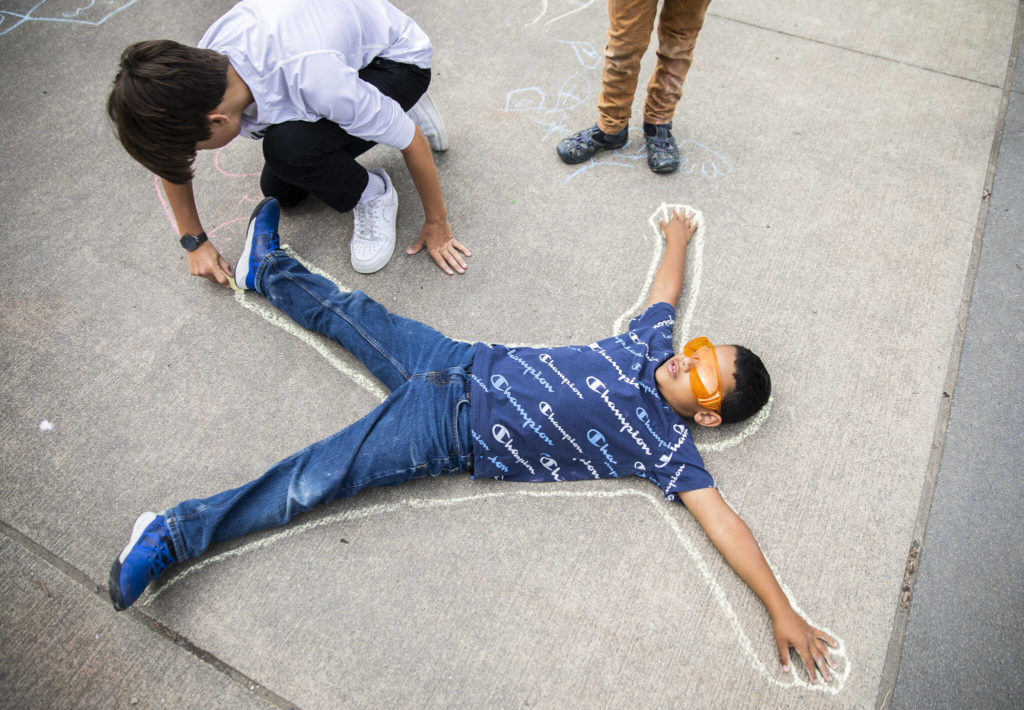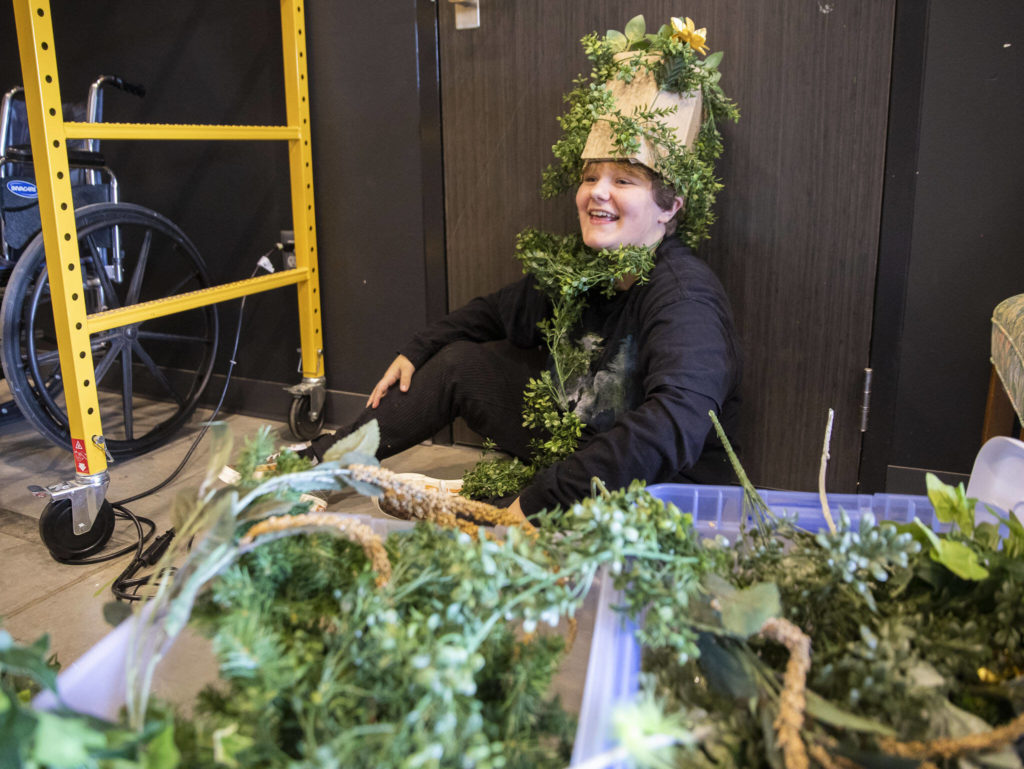MARYSVILLE — Summer school attendance in Lakewood grew almost 64% this year over last — but not for the reasons you might expect.
Since the pandemic started, school districts throughout Snohomish County have reported increased attendance in summer learning programs as students try to boost grades or make up courses they struggled in on digital or hybrid platforms. While that’s true in Lakewood, too, school officials say summer school enrollment jumped from 179 students to 293, not by necessity but excitement.
This year, the district launched the Lakewood Summer Academy, a voluntary summer camp-style program where students take hands-on courses that “hide the broccoli in the brownies,” said Joey Wasson, summer school principal. Instead of reworking math problems and doing structured reading activities, students might make their own board games or prepare a feast from produce they harvested themselves.
“Our secret desire is that it does fill a learning gap … but our main goal is to let the kids have fun,” Wasson said.
About 10 miles north in Arlington, school staff is taking a similar approach with the “Cool Bus,” a mobile summer program that brings books and educational games to local neighborhoods once a week. The Cool Bus combined the “math-mobile” and “books on the bus,” two long-standing programs, to give a “one-stop shop” for families looking to mix learning and fun this summer, said Kristen Bass, an Eagle Creek Elementary School teacher who works with the program. Each week, the bus visits five neighborhoods. Teachers unload three activity stations and help students check out up to three books.
School staff in Lakewood and Arlington want their nontraditional approaches to summer learning to make school enjoyable, so it’s easier for students to maintain or rebuild skills. Both continue to offer makeup courses for students who failed a class, but the summer camp and Cool Bus serve as two examples of an educational philosophy playing out in schools on a local level.
Cognitive research dating back to the 1990s shows stress, boredom and low motivation interfere with learning. Students retain information better when they are happy and engaged. Using games and guided play can keep learning joyful, according to various studies.
Bryan Toutant, Lakewood’s director of teaching and learning, said the pandemic drove his district to “think about how we engage with our kids” in school and over the summer.
“It gave us the opportunity to do something we should have been doing all along,” Toutant said. “The academics will follow the engagement.”
Much of the idea for reshaping summer school started with parents. Wasson said the district knew it wanted to do something different this year, so she surveyed parents about what they wanted to see.
“Overwhelmingly, parents were like, ‘We just want it to be fun, to be hands on, to be creative. We want a new experience for students,’” Wasson said.
So she encouraged teachers to “think outside the box” and follow their passions as they pitched summer courses to teach. She invited educators to lead classes on topics they loved, even if it veered from the usual subject matter. If they like to knit, then they could teach a class on knitting. If they liked to play board games, they could teach a course on that.
The approach appears to have encouraged more teachers to get involved. Only seven signed up a year ago. Twenty did this year..
“It made sense to let them pursue their interests,” Toutant said.
Using federal funding earmarked for pandemic-related learning recovery in schools, Lakewood dedicated $45,000 to the program. That’s nearly triple what it spent last year on more traditional curriculum.
In Arlington, the district funneled about $15,000 into the Cool Bus. Because it combines two summer projects that were already in place, the total cost of the program hasn’t gone up, said Karl Olson, director of categorical learning. The district uses federal and state funding set aside for students who are failing, or at risk of failing, to pay for the bus.
Families board the bus to choose their books. Instead of seats, bins of books organized by reading level fill up the back half of the bus. Kids get points for each book they check out, and they can “spend” those points on prizes at the end of the summer.
Cool Bus “librarian” Kim Deisher-Allen, a first grade teacher at Eagle Creek, helps kids to pick up to three books to take home, keeping in mind that many students are not reading at their grade level because of learning challenges spurred by the pandemic.
Once they have their books, or if they’re waiting for the library line to shorten, the kids head to the activity stations.
Last week Bass, the Eagle Creek teacher, led students in playing Tenzi, a dice rolling game where players try to be the quickest to roll 10 dice to the same number. The game tests a player’s “subitizing skills,” or the ability to instantly recognize a number of objects — in this case, dots on the dice — without actually counting them.
“I want kids to know that they are doing math and it’s fun. They’re doing reading, and it’s fun,” Bass said.
Parents often listen as rules are explained or ask where they can buy some of the games later, Bass said. And that’s exactly the takeaway the teachers want them to have.
“Families notice these are things they can do easily at home, and the kids don’t even realize their brains are working,” said Heather Jones, an art teacher.
Last week, Michelle Kinney brought two daughters to the Cool Bus stop at Eagle Creek. She said the family has been doing summer school at home, and she wanted to give the girls a “different venue” and “different kinds of learning.” At first, her daughters complained they didn’t really want to go. But by the end of the 45-minute visit, they both were smiling as they toted home book bags filled with reading material and drawings of one-point perspective shapes.
“I liked it because there’s lots of different things. The art was my favorite,” said Gabrielle, 8.
Back in Lakewood, incoming fourth-grader Cole Charron worked alongside his classmates to grind dried wheat — grown locally — into flour using a mortar and pestle. Charron said his mom signed him up for the academy because “she thought it would be cool, like a summer camp.” After about two weeks in Stacy Lischke’s “Farm to Classroom” session, he lights up when he talks about what he has learned. He said he now wants to be a dairy farmer when he grows up because he really enjoyed milking goats and cows with his teacher.
Lischke, who advises the Future Farmers of America, signed up to work with elementary school students this summer to teach ag literacy to younger kids. She focuses on building their vocabularies — words like “biodiversity,” “varieties” and “breed” are usually new for third-, fourth- and fifth-graders — and conducting activities that show what really goes into making food. The students so far have churned butter, made whipped cream and harvested berries from the school garden.
“They know that they are learning, but they know it relates to something fun,” she said, before leading the students in making their own playdough out of ingredients made on farms.
Cole gave the course and the summer academy his seal of approval before heading back to mill more flour.
“It’s just amazing. Honestly, it’s so much fun.”
Mallory Gruben is a Report for America corps member who writes about education for The Daily Herald.
Mallory Gruben: 425-339-3035; mallory.gruben@heraldnet.com; Twitter: @MalloryGruben.
Talk to us
> Give us your news tips.
> Send us a letter to the editor.
> More Herald contact information.
